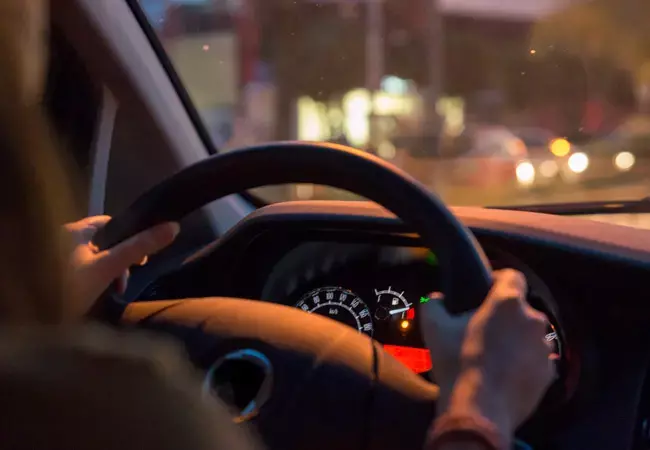- Home
- Medical news & Guidelines
- Anesthesiology
- Cardiology and CTVS
- Critical Care
- Dentistry
- Dermatology
- Diabetes and Endocrinology
- ENT
- Gastroenterology
- Medicine
- Nephrology
- Neurology
- Obstretics-Gynaecology
- Oncology
- Ophthalmology
- Orthopaedics
- Pediatrics-Neonatology
- Psychiatry
- Pulmonology
- Radiology
- Surgery
- Urology
- Laboratory Medicine
- Diet
- Nursing
- Paramedical
- Physiotherapy
- Health news
- Fact Check
- Bone Health Fact Check
- Brain Health Fact Check
- Cancer Related Fact Check
- Child Care Fact Check
- Dental and oral health fact check
- Diabetes and metabolic health fact check
- Diet and Nutrition Fact Check
- Eye and ENT Care Fact Check
- Fitness fact check
- Gut health fact check
- Heart health fact check
- Kidney health fact check
- Medical education fact check
- Men's health fact check
- Respiratory fact check
- Skin and hair care fact check
- Vaccine and Immunization fact check
- Women's health fact check
- AYUSH
- State News
- Andaman and Nicobar Islands
- Andhra Pradesh
- Arunachal Pradesh
- Assam
- Bihar
- Chandigarh
- Chattisgarh
- Dadra and Nagar Haveli
- Daman and Diu
- Delhi
- Goa
- Gujarat
- Haryana
- Himachal Pradesh
- Jammu & Kashmir
- Jharkhand
- Karnataka
- Kerala
- Ladakh
- Lakshadweep
- Madhya Pradesh
- Maharashtra
- Manipur
- Meghalaya
- Mizoram
- Nagaland
- Odisha
- Puducherry
- Punjab
- Rajasthan
- Sikkim
- Tamil Nadu
- Telangana
- Tripura
- Uttar Pradesh
- Uttrakhand
- West Bengal
- Medical Education
- Industry
Driving abilities of patients completely restored at 4 hours after endoscopy performed under propofol sedation

Driving abilities of patients completely restored at 4 hours after endoscopy performed under propofol sedation suggests a new study published in the BMC Anesthesiology.
Patients are recommended not to drive for at least the first 24 h after endoscopy with propofol sedation. However, the evidence underlying these recommendations is scarce. We hypothesized that after endoscopic procedures performed under propofol sedation, the subject’s driving ability was restored in less than 24 h.
Researchers prospectively enrolled thirty patients between 20 and 70 years possessing a legitimate driver’s license scheduled for endoscopy at our hospital. The sample chosen was a convenience sample. Gastroscopy or colonoscopy was performed with propofol sedation. Before and after endoscopy, the investigator drove the subjects to the laboratory to assess their driving skills using a driving simulation system, which employs 3 driving scenarios designed by professional transportation researchers. The blood propofol concentration was estimated before endoscopy, and 2 and 4 h after endoscopy. The primary outcome was the time required for subjects to recover their driving ability after propofol sedation. The secondary outcome was the blood propofol concentration before and after endoscopic procedures under propofol anesthesia.
Results
Thirty volunteers participated in the study and 18 of them completed all the interventions. In the low-risk S-curve scene, the mean acceleration, lane deviation, and number of deviations from the path at baseline (0.016 cm/s2, 42.50 cm, and 0.83, respectively) were significantly less than that at post-2 h (0.029 cm/s2, P = 0.001; 53.80 cm, P = 0.014; 2.06, P = 0.022). In the moderate-(overtaking) and high-risk (emergency collision avoidance) scenes, the tested parameters at baseline and post-2 h were statistically comparable. In the low-, moderate-, and high-risk scenes the tested parameters at baseline and post-4 h were statistically comparable. The total range of propofol was 120-280 mg.The mean blood concentration of propofol at post-2 h was 0.81 ± 0.40 µg/mL, and at post-4 h was below the limit of detection.
After endoscopy performed under propofol sedation, subjects’ driving abilities were completely restored at 4 h when tested on a simulator.
Reference:
Hao, XW., Zhan, YL., Li, P. et al. Recovery of driving skills after endoscopy under propofol sedation: a prospective pilot study to assess the driving skills after endoscopic sedation using driving simulation. BMC Anesthesiol 23, 223 (2023). https://doi.org/10.1186/s12871-023-02122-z
Keywords:
Hao, XW., Zhan, YL., Li, P, Recovery, driving, skills, after, endoscopy, under, propofol, sedation, prospective, pilot, study, assess, driving, skills, after, endoscopic, sedation, using, driving, simulation, BMC Anesthesiology, Gastrointestinal endoscopy, Driving skills, Propofol sedation, Driving simulators
Dr. Shravani Dali has completed her BDS from Pravara institute of medical sciences, loni. Following which she extensively worked in the healthcare sector for 2+ years. She has been actively involved in writing blogs in field of health and wellness. Currently she is pursuing her Masters of public health-health administration from Tata institute of social sciences. She can be contacted at editorial@medicaldialogues.in.
Dr Kamal Kant Kohli-MBBS, DTCD- a chest specialist with more than 30 years of practice and a flair for writing clinical articles, Dr Kamal Kant Kohli joined Medical Dialogues as a Chief Editor of Medical News. Besides writing articles, as an editor, he proofreads and verifies all the medical content published on Medical Dialogues including those coming from journals, studies,medical conferences,guidelines etc. Email: drkohli@medicaldialogues.in. Contact no. 011-43720751


